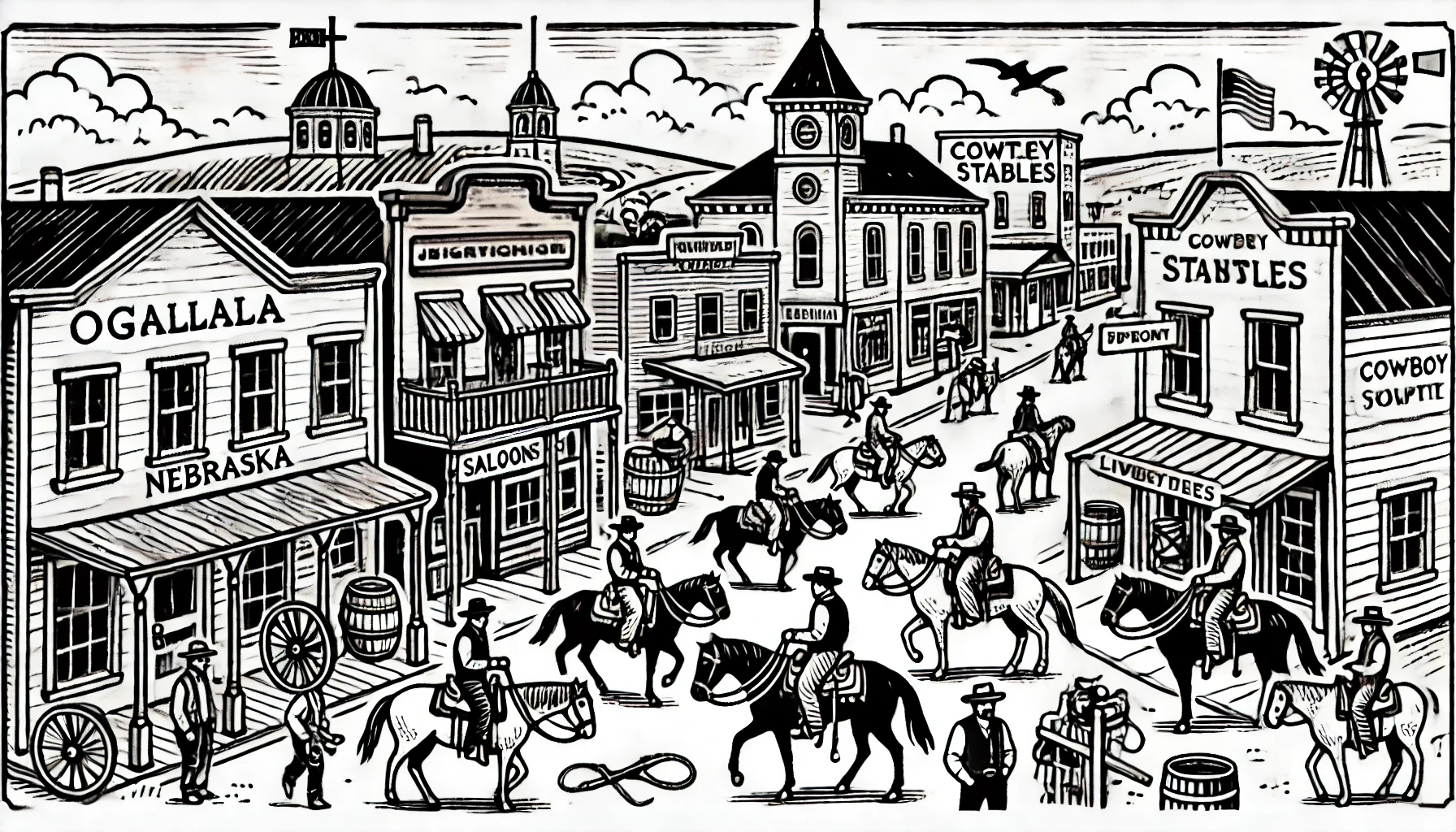Farmers Market Nutrition Programs in Nebraska

Traveling through Nebraska, one cannot help but notice the vibrant farmers markets dotting the state's landscape, particularly in Omaha and Lincoln, the two largest cities. These bustling hubs of local commerce not only provide an opportunity for rural farmers to sell their produce but also serve as a vital connection between consumers and nutritious food. One of the vital components of these markets is the Farmers Market Nutrition Programs, designed to increase access to healthy, locally grown produce for low-income individuals and families.
The Farmers Market Nutrition Programs, also known as FMNP, operate under the United States Department of Agriculture's Senior Farmers' Market Nutrition Program and the Women, Infants, and Children Farmers' Market Nutrition Program. In Nebraska, the programs are administered by the Nebraska Department of Health and Human Services in collaboration with the Nebraska Department of Agriculture. Eligible participants, typically low-income seniors and pregnant women, as well as women with young children participating in the Women, Infants, and Children program, receive benefits that they can redeem for fresh fruits, vegetables, and other locally grown produce at participating farmers' markets.
The Omaha Farmers Market, located in the historic Old Market district of downtown Omaha, and the Lincoln Farmers' and Artisans' Market, situated in the Lincoln Historic Haymarket District, are two prominent markets in the state where FMNP benefits can be redeemed. The benefits are typically distributed in the form of vouchers or electronic benefits transfer cards. For instance, during the 2020 growing season, the Omaha Farmers Market received over thirteen thousand dollars in reimbursement for FMNP claims, highlighting the success of this initiative.
Farmers participating in the FMNP also benefit from the increased foot traffic and revenue generated by the program. For example, the Robb Family Farm, a small, family-owned operation in Oxford, Nebraska, has been a staple at the Lincoln market for several years. By accepting FMNP benefits, the farm increases its exposure and customer base. Research has shown that such collaboration between farmers and nutrition programs contributes to a healthier local food economy and promotes healthy eating habits among low-income populations.
In addition to these individual success stories, data from the Nebraska Department of Health and Human Services suggest that statewide participation in FMNP has steady growth over the years, indicating that the programs are making a notable impact on improving access to nutritious food among vulnerable populations. The observed outcomes align with broader research, which attributes positive health outcomes to increased fruit and vegetable consumption.
Researchers have also been studying the impact of FMNP on the state's economy. For example, an economic impact analysis conducted in 2019 by the University of Nebraska-Lincoln's Department of Agricultural Economics revealed that every dollar invested in FMNP generates approximately two dollars of economic activity within the local food system.
Despite the positive trends, challenges and limitations still exist. Rural poverty and limited access to healthcare services hinder widespread adoption and access to the programs. Furthermore, logistics pose a challenge to serving the state's more dispersed and isolated areas. Despite these barriers, local organizations and health practitioners are continually working together to innovate and expand these vital nutrition programs.
Overall, the Farmers Market Nutrition Programs serve as a critical link between Nebraska's rural farmers and low-income families, providing essential support for these groups. In order to expand this critical endeavor and promote economic development and human well-being, policymakers, researchers, and local stakeholders must address existing limitations while supporting those participating in this critical food assistance program.
The Farmers Market Nutrition Programs, also known as FMNP, operate under the United States Department of Agriculture's Senior Farmers' Market Nutrition Program and the Women, Infants, and Children Farmers' Market Nutrition Program. In Nebraska, the programs are administered by the Nebraska Department of Health and Human Services in collaboration with the Nebraska Department of Agriculture. Eligible participants, typically low-income seniors and pregnant women, as well as women with young children participating in the Women, Infants, and Children program, receive benefits that they can redeem for fresh fruits, vegetables, and other locally grown produce at participating farmers' markets.
The Omaha Farmers Market, located in the historic Old Market district of downtown Omaha, and the Lincoln Farmers' and Artisans' Market, situated in the Lincoln Historic Haymarket District, are two prominent markets in the state where FMNP benefits can be redeemed. The benefits are typically distributed in the form of vouchers or electronic benefits transfer cards. For instance, during the 2020 growing season, the Omaha Farmers Market received over thirteen thousand dollars in reimbursement for FMNP claims, highlighting the success of this initiative.
Farmers participating in the FMNP also benefit from the increased foot traffic and revenue generated by the program. For example, the Robb Family Farm, a small, family-owned operation in Oxford, Nebraska, has been a staple at the Lincoln market for several years. By accepting FMNP benefits, the farm increases its exposure and customer base. Research has shown that such collaboration between farmers and nutrition programs contributes to a healthier local food economy and promotes healthy eating habits among low-income populations.
In addition to these individual success stories, data from the Nebraska Department of Health and Human Services suggest that statewide participation in FMNP has steady growth over the years, indicating that the programs are making a notable impact on improving access to nutritious food among vulnerable populations. The observed outcomes align with broader research, which attributes positive health outcomes to increased fruit and vegetable consumption.
Researchers have also been studying the impact of FMNP on the state's economy. For example, an economic impact analysis conducted in 2019 by the University of Nebraska-Lincoln's Department of Agricultural Economics revealed that every dollar invested in FMNP generates approximately two dollars of economic activity within the local food system.
Despite the positive trends, challenges and limitations still exist. Rural poverty and limited access to healthcare services hinder widespread adoption and access to the programs. Furthermore, logistics pose a challenge to serving the state's more dispersed and isolated areas. Despite these barriers, local organizations and health practitioners are continually working together to innovate and expand these vital nutrition programs.
Overall, the Farmers Market Nutrition Programs serve as a critical link between Nebraska's rural farmers and low-income families, providing essential support for these groups. In order to expand this critical endeavor and promote economic development and human well-being, policymakers, researchers, and local stakeholders must address existing limitations while supporting those participating in this critical food assistance program.
